Publications
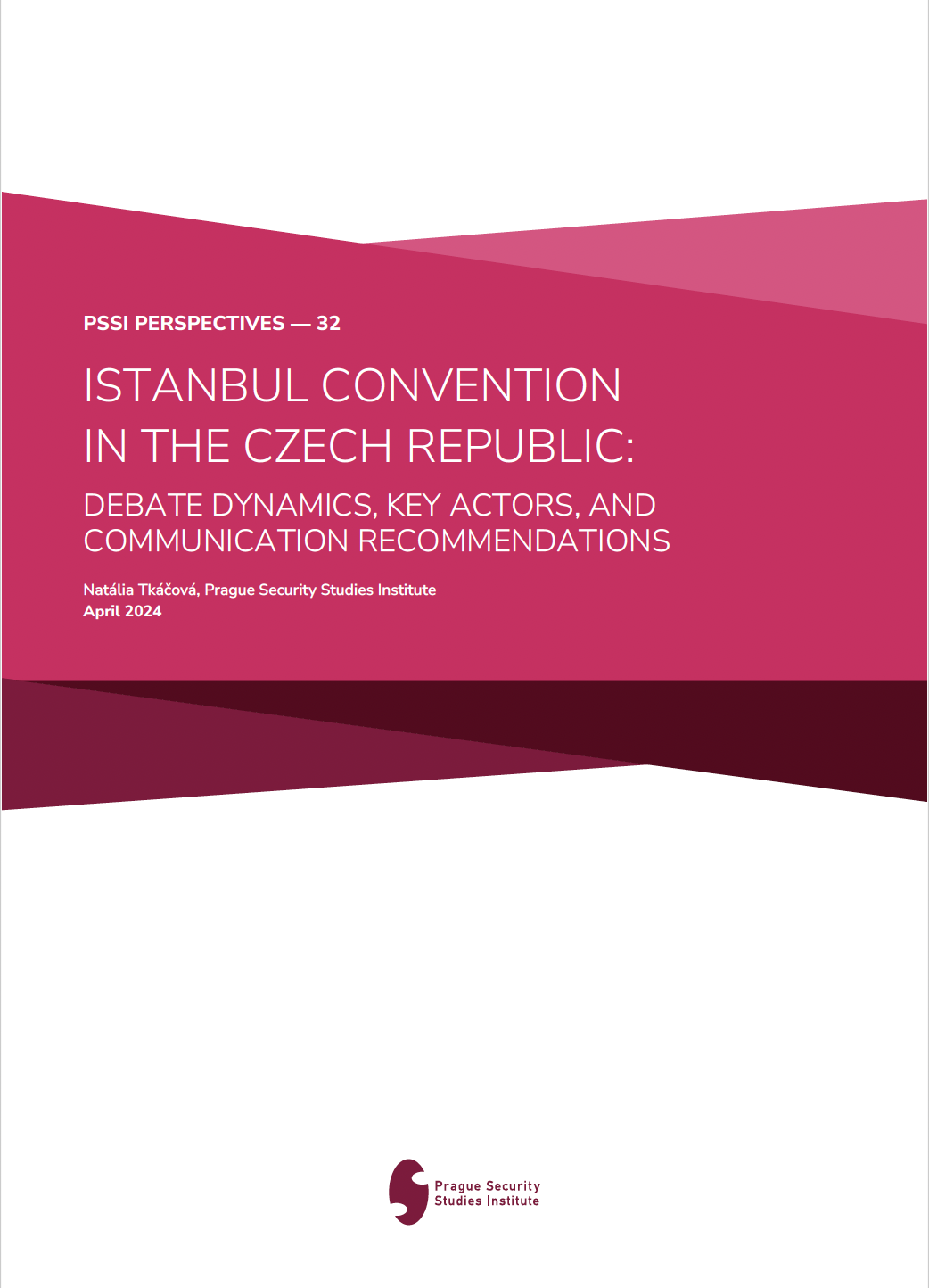
Information Resilience Program // Natália Tkáčová / 18 Apr 2024
Istanbul Convention in the Czech Republic: Debate Dynamics, Key Actors, and Communication Recommendations
This analysis seeks to identify key stakeholders involved in the public debate around the Istanbul Convention and its framing. The analytical report provides practical communication recommendations with the aim of fostering a more balanced public debate about the Istanbul Convention. The outputs are based on semi-structured expert interviews with the government's Human Rights Commissioner, a representative of the media, the non-governmental sector and a legal expert. The analysis is available in both English and Czech.
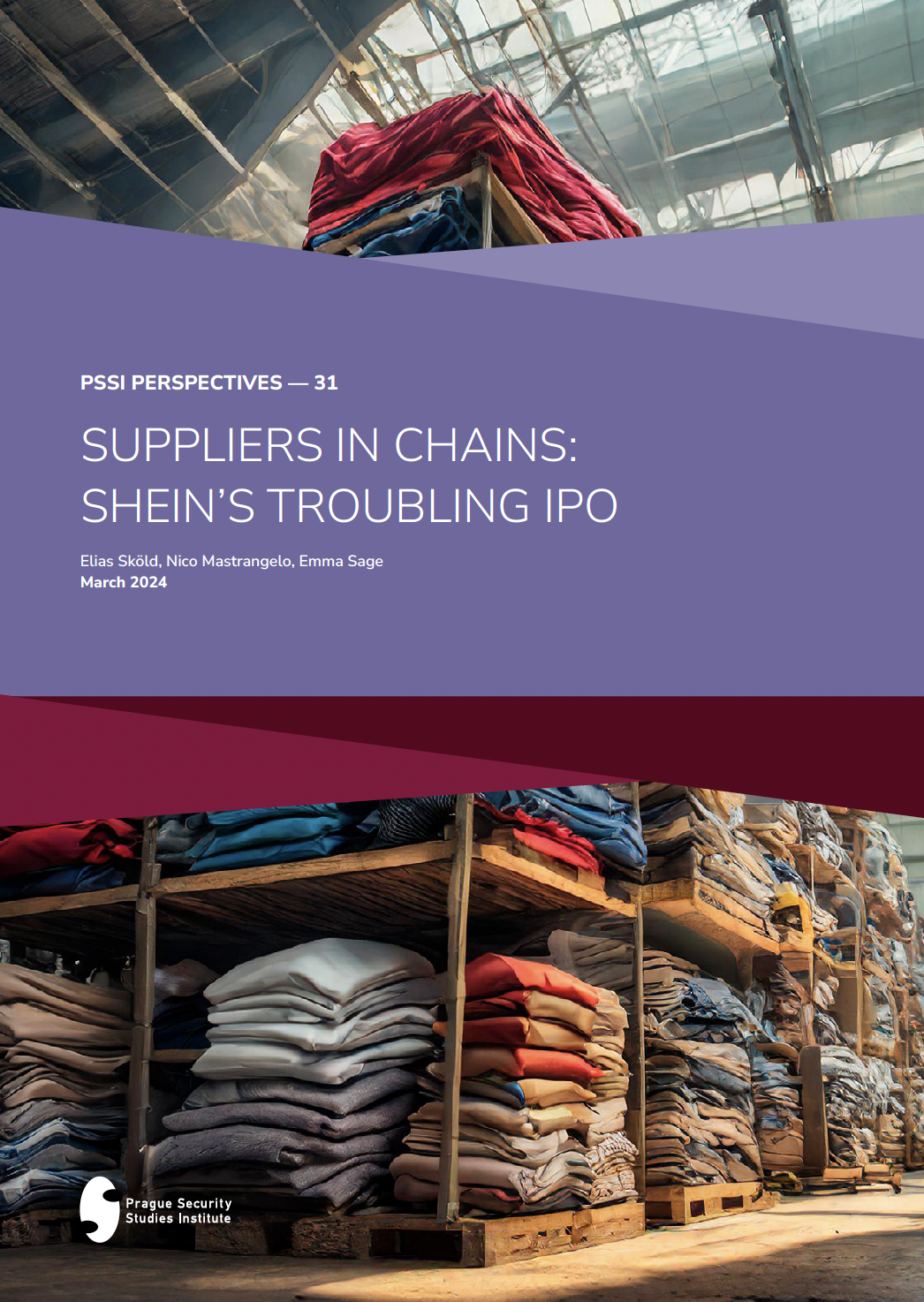
Economic & Financial Statecraft Program // Elias Sköld, Nico Mastrangelo, Emma Sage / 6 Mar 2024
Suppliers in Chains: SHEIN’s Troubling IPO
PSSI’s newest Perspective takes on the proposed IPO of SHEIN, the fast-fashion giant faced with a litany of allegations. We find that SHEIN has either concealed its practices or willfully misled consumers and lawmakers in the U.S. and EU regarding its record on human rights, workers' rights, environmental damage, consumer product toxicity levels, and customs regulations. It has been demonstrably and repeatedly linked to forced labor from the Xinjiang Province in China, faces a multitude of criminal allegations, and has demonstrated a repeated failure to protect workers and consumers.
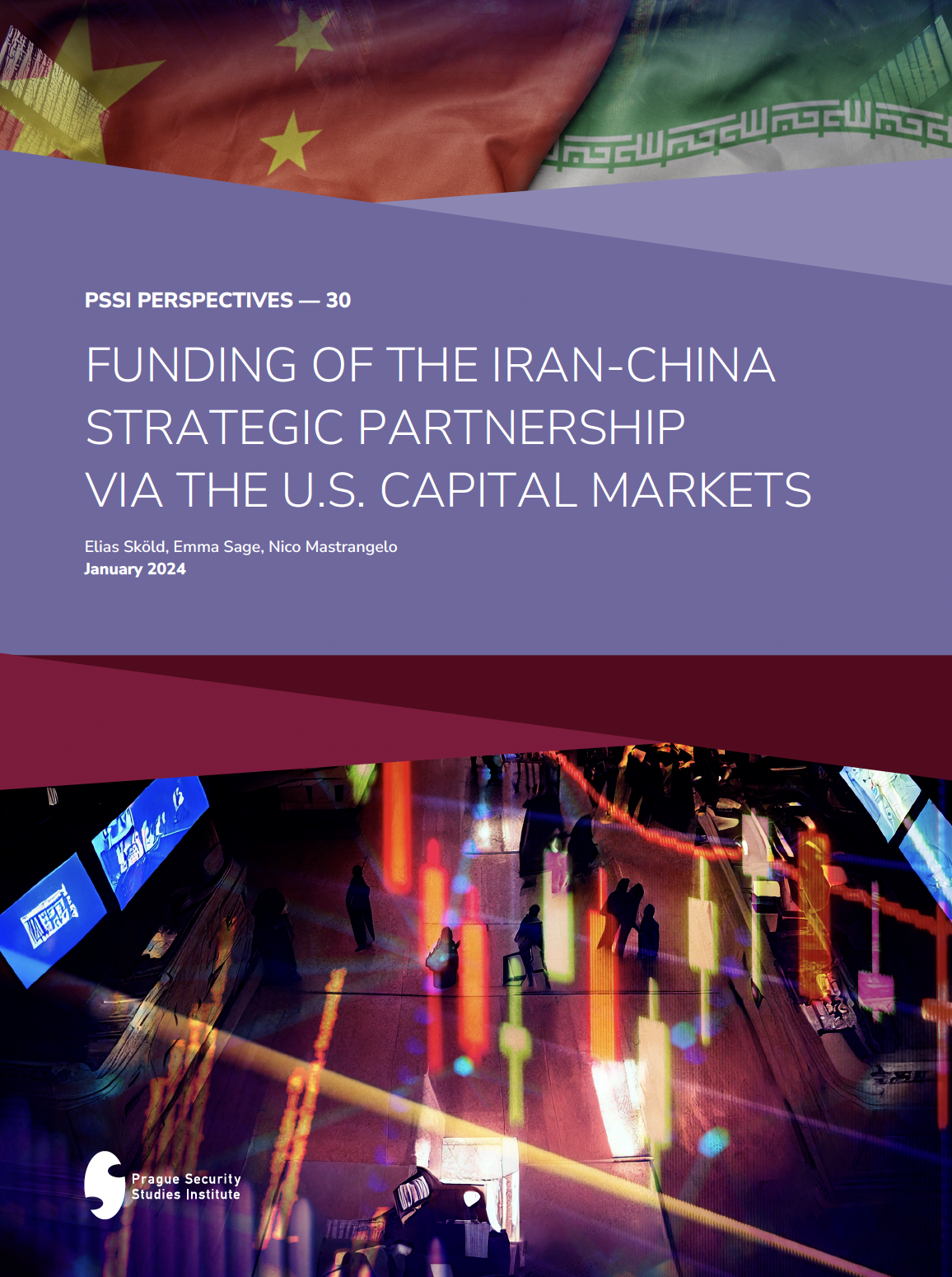
Economic & Financial Statecraft Program // Elias Sköld, Emma Sage, Nico Mastrangelo / 31 Jan 2024
Funding of the Iran-China Strategic Partnership via the U.S. Capital Markets
PSSI's research reveals a regulatory crisis in global finance: American investment funds have been funneled into Chinese companies which bolster and support Iran’s rogue activities. This report highlights 40 such companies, which cumulatively enjoy U.S.-based investments valued at over $6 billion. This alarming relationship, driven by major U.S. asset managers like Vanguard, State Street, and Dimensional, demonstrates how Western funds are inadvertently supporting Iran's role as a principal state sponsor of terror.
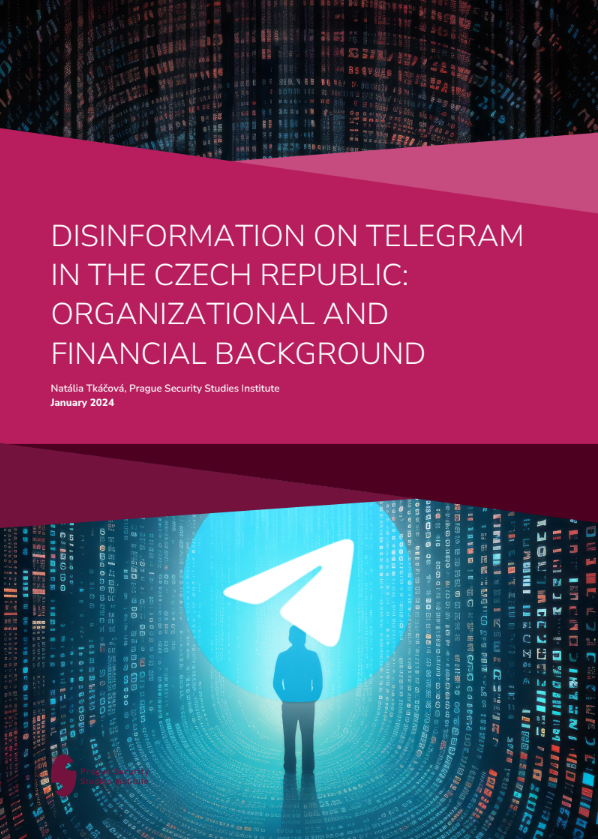
Information Resilience Program // Natália Tkáčová, Prague Security Studies Institute / 23 Jan 2024
Disinformation on Telegram in the Czech Republic: Organizational and Financial Background
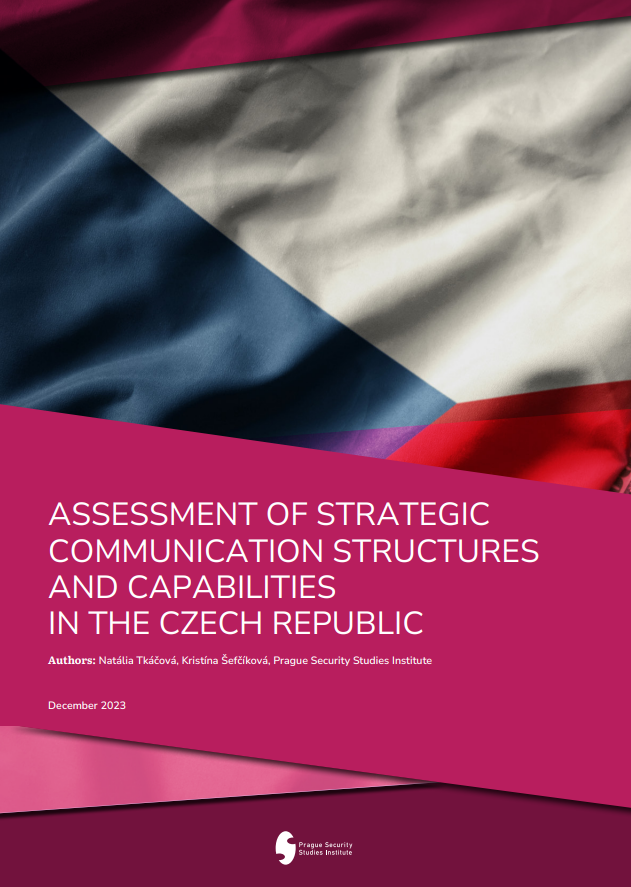
Information Resilience Program // Natália Tkáčová, Kristína Šefčíková / 8 Dec 2023
Assessment of Strategic Communication Structures and Capabilities in the Czech Republic
The primary goals of strategic communication comprise from both an informative role for domestic and international audiences regarding the nation’s values, identity, capabilities, and actions, as well as a strategic security aspect to monitor, analyze, and respond to international political developments to enhance the nation’s position and avert potentially destabilizing actions from adversaries.
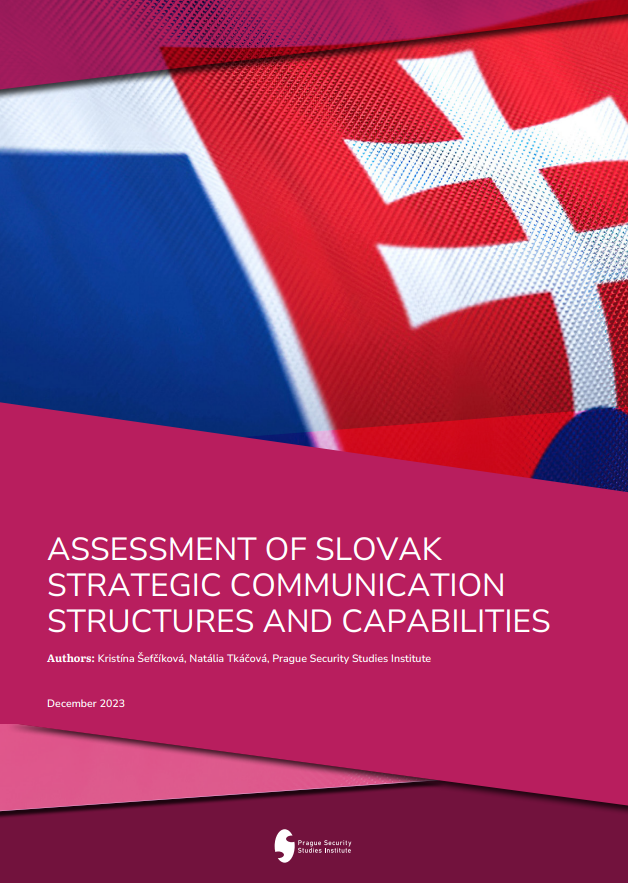
Information Resilience Program // Natália Tkáčová, Kristína Šefčíková / 8 Dec 2023
Assessment of Slovak Strategic Communication Structures and Capabilities
Slovakia finds itself grappling with a number of consecutive crises that extend beyond the bounds of the health system, geopolitics, and energy issues. The overarching political instability in the region, compounded by the enduring challenges of the Covid-19 pandemic, the Ukraine war, and energy concerns, was exacerbated by an internal political crisis that led to the fall of the Slovak government in December 2022 and subsequent snap election that took place recently. The political instability, accompanied by decades-long corruption, created a corrosive effect of alarmingly low trust in government institutions, media, and even democracy. These issues have created a particularly challenging environment for strategic communication. As a consequence, the impact of governmental communication on its priority issue areas has, so far, been minimal, despite the development of strategic communication units and initiatives under a national conceptual framework.
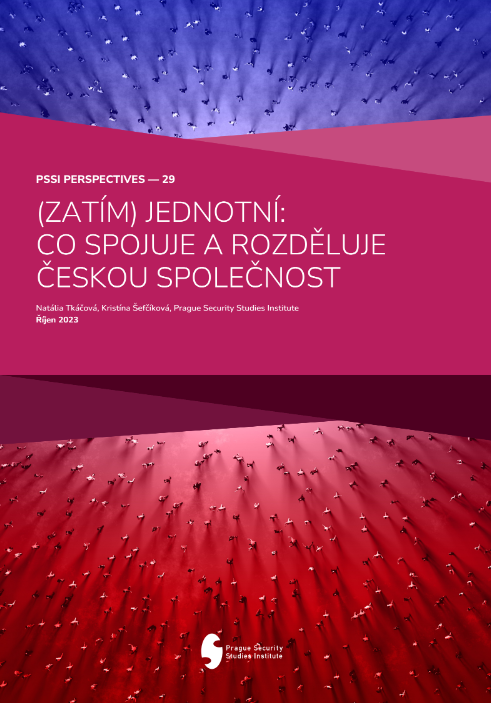
Information Resilience Program // Natália Tkáčová, Kristína Šefčíková / 6 Nov 2023
PSSI Perspective #29: (Zatím) jednotní: Co spojuje a rozděluje českou společnost
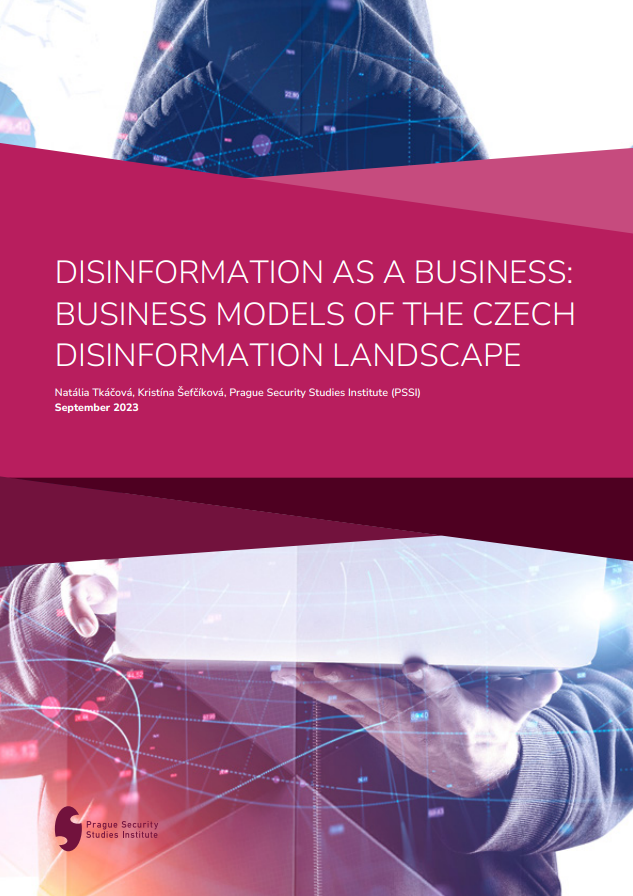
Information Resilience Program // Natália Tkáčová, Kristína Šefčíková / 29 Sep 2023
Disinformation as a Business: Business Models of the Czech Disinformation Landscape
The Prague Security Studies Institute (PSSI) has analyzed the financial background of disinformation in the Czech Republic since 2020. Research on disinformation usually focuses on its content, but often overlooks the financial aspects and the variety of motivations behind the spread of disinformation. Knowledge concerning these aspects is crucial for employing effective tools for countering disinformation and building a healthy information space with resilient audiences. The present report demonstrates that disinformation can be a financially profitable business and defunding should be explored as a counter-strategy to malign information activities.
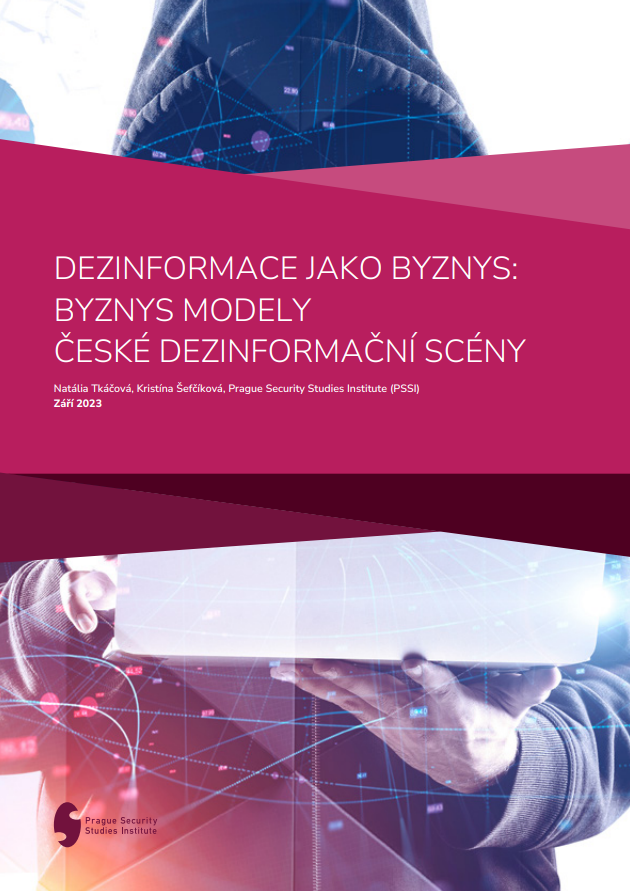
Information Resilience Program // Natália Tkáčová, Kristína Šefčíková / 28 Sep 2023
Dezinformace jako byznys: Byznys modely české dezinformační scény
Prague Security Studies Institute (PSSI) analyzuje finanční pozadí dezinformací v České republice od roku 2020. Výzkum v oblasti dezinformací se obvykle zaměřuje na jejich obsah, často však přehlíží jejich finanční aspekty a rozmanitost motivací pro šíření dezinformací. Znalost těchto aspektů je klíčová pro výběr účinných nástrojů na potírání dezinformací a pro budování zdravého informačního prostoru s odolným publikem. Tato analýza dokazuje, že dezinformace mohou být ziskový byznys a demonetizace by se měla přezkoumat jako protistrategie k škodlivým informačním aktivitám.
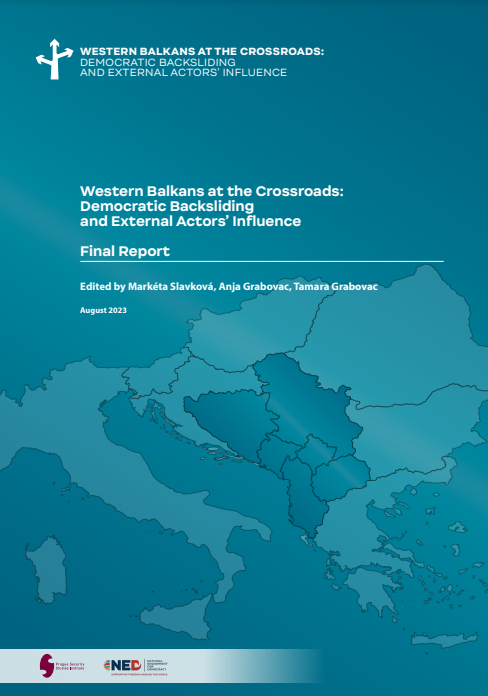
Information Resilience Program // PSSI / 30 Aug 2023
Western Balkans at the Crossroads: Democratic Backsliding and External Actors' Influence – Final Report
This final report offers the results of Prague Security Studies Institute's latest research on democratic backsliding in the Western Balkans and Croatia (an EU member state), conducted between fall 2022 and spring 2023.